By Ted Konnerth, Egret Consulting Group
There’s a lot of buzz about disintermediation lately and most of it is directed towards Lighting. And there is a very good reason why Lighting takes the brunt of it…. It’s the most complex electrical product vertical. I’ve often said that Lighting is the only product that has 300M individual US specifiers. The breadth of the vertical is also massive: lamps, controls, ballasts and fixtures lead to multiple channels of buying influences.
I’ve consulted with several global corporations to help them understand the US market and it’s surprising to them when I reveal the number of discrete, stand-alone channels we have in the US. I’ve counted over 15; with each channel defined as capable of supporting or requiring a separate sales organization and separate buying source. The list includes:
C/I (stock v project)
Consumer Big Box
Retail showroom
Retail Mass market
Industrial
DOT
Utility
National Accounts
Hardware
Catalog (Grainger, MSC, etc.)
Energy/ESCO
Lighting Maintenance
International
Internet
Direct to end-user
Now some of those have sub-specialties; such as C/I, it is typical for a manufacturer to have sales people dedicated to the promotion of stock products and sales dedicated to the specification market. Industrial is similar, there are MRO specialists, OEM specialists, industrial construction specialists (Bechtel as an example). By now, you get the point; lighting is sold everywhere and somebody has a say in making a buying decision, from a 3-year old toddler to a 90 year old grandmother, lighting is ubiquitous.
So, very few manufacturers have the bandwidth to play in every market above. And those that do are the ones that are typically assailed for their distribution policy. As someone who knows a lot about selling across every market above, I can tell you that channel partnership is an impossible task to please everybody. So let’s at least be fair. When you’re manufacturing $2B in lighting equipment every year, you have to find buyers for that amount of material. And quite honestly, wholesale electrical distributors don’t have the bandwidth to address every market listed above, so now it becomes a diatribe of, in which markets should distributors have primacy?
My answer is none. Distributors should get support from their vendors for the orders they have a degree of influence over; the rest of the products that flow into that market…. are outside their purview. That’s pretty stark and probably needs to be wordsmithed a bit. But let’s play out a few examples of ‘disintermediated ethics’:
1. National accounts. If your vendor is selling Menards product for their retail sale, why would anybody expect Menards to buy products for their in-store usage from a distributor?
2. MRO. It is logical that a distributor should serve the MRO market. But what happens when technology moves rapidly into LED and controls and the distributor salesperson isn’t trained or qualified to make a credible presentation to an industrial customer on the cost of money to change out their obsolete lighting? Bill Brown (Wiedenbach-Brown) has made very insightful points that the salesman may actually obsolesce himself if he does change out the technology; he loses that monthly shipment of T-8 lamps in exchange for a one-time LED relighting order.
3. Amazon. Wow, it’s really hard for a $2B manufacturer to tell a $100B distributor of ‘all things’ that you don’t want any relationship with them. Especially when the industry is in the early stages of a complete renaissance. Do you pick a new channel partner and downplay the impact with your current partners, or do you tell Amazon that your channel strategy is fine without them? OR, do you check out the website and on-line commerce capabilities of your local market partners?
4. Partnership definition. If Wesco is your partner and they’re also partnering with 1 or 2 of your competitors, does that make the Amazon offer more appealing, or less? If CED Columbus is your partner and you hold the specification for the new $10M roll out of the Limited Stores, do you tell CED you got the business or ‘forget to mention it’?
The lighting industry is expanding well beyond the definitions of channel partnerships. The IoT movement, epigenetic research, agriculture, UV treatment applications and Big Data will move the discussion of Lighting to areas none of us have ever considered before. Each of those technologies will represent a unique channel solution as well. My list above could potentially double in the next ten years.
The future of lighting will require a new look at the category of meaningful buying influences, and hence the establishment of new rules of engagement for industry partnerships. Distributors aren’t going away; they have a meaningful and impactful role in the efficient transfer of goods in the country. But distributors have to adapt to the changes. They will lose their bargaining rights to Lighting if they can’t compete successfully in moving lighting goods. We will have 20-25 years of legacy sales of legacy ‘stuff’: T-8 lamps, HID lamps, replacement ballasts and fixtures, dimmers, basic controls and trims, lampholders and lenses. That market is a steep exercise of diminishing returns. And it will result in diminishing support as well; stock discounts, rebates, advertising allowances, specialty payment terms, etc. The legacy system is laden with extraordinary incentives, based on historical partnership relationships that demanded mutual support. If a manufacturer can sell $20M to Amazon, without rebates, agent commissions, elaborate promotions and marketing support…. It will happen. And it should happen. It’s free market forces establishing a new order of normalcy.
In short, I propose that we throw away the discussion of disintermediation and replace it with a discussion on establishing the new definition of lighting distribution. Let’s talk about lighting solution providers and create support for innovative approaches to selling lighting, profitably.




